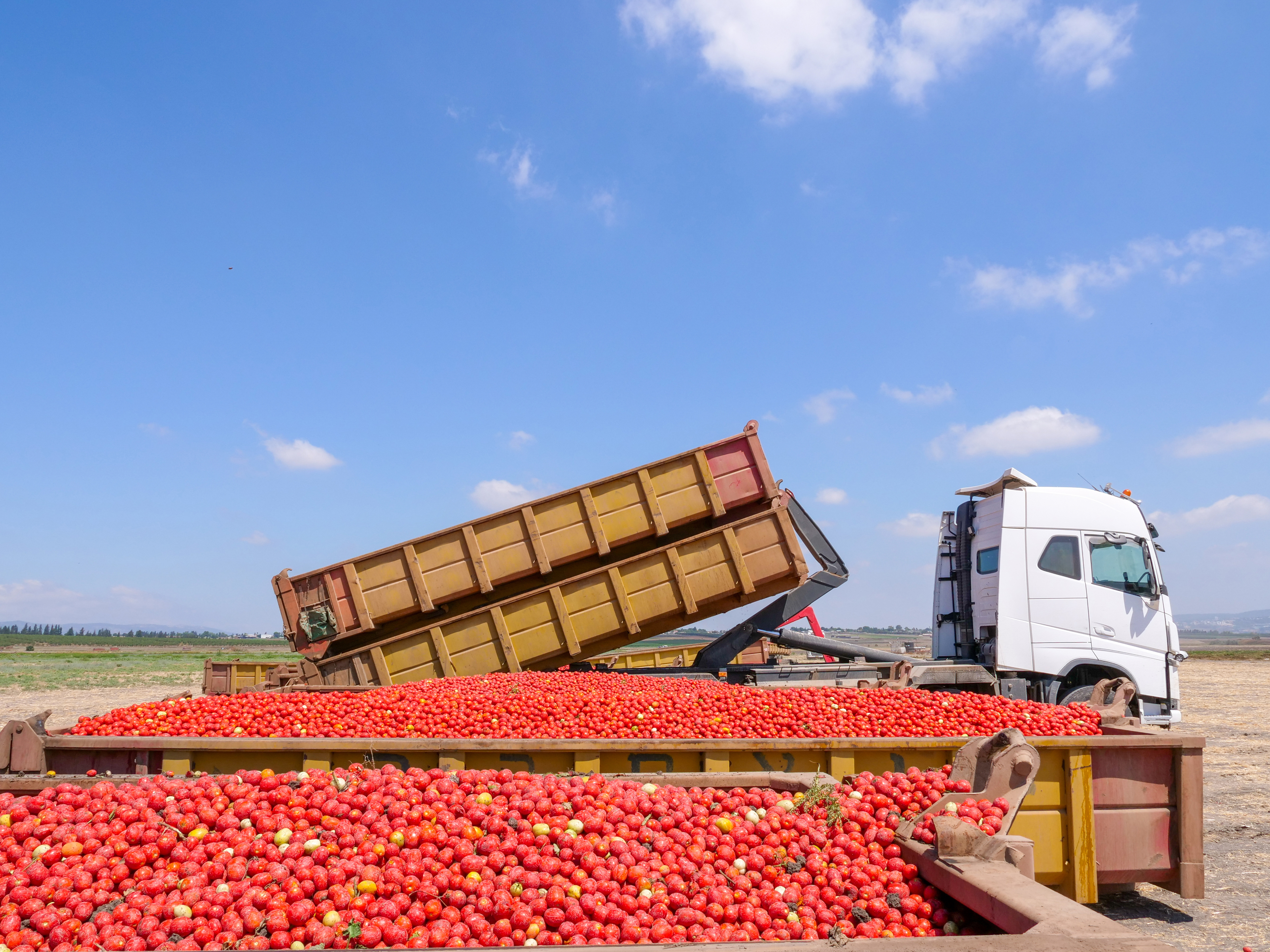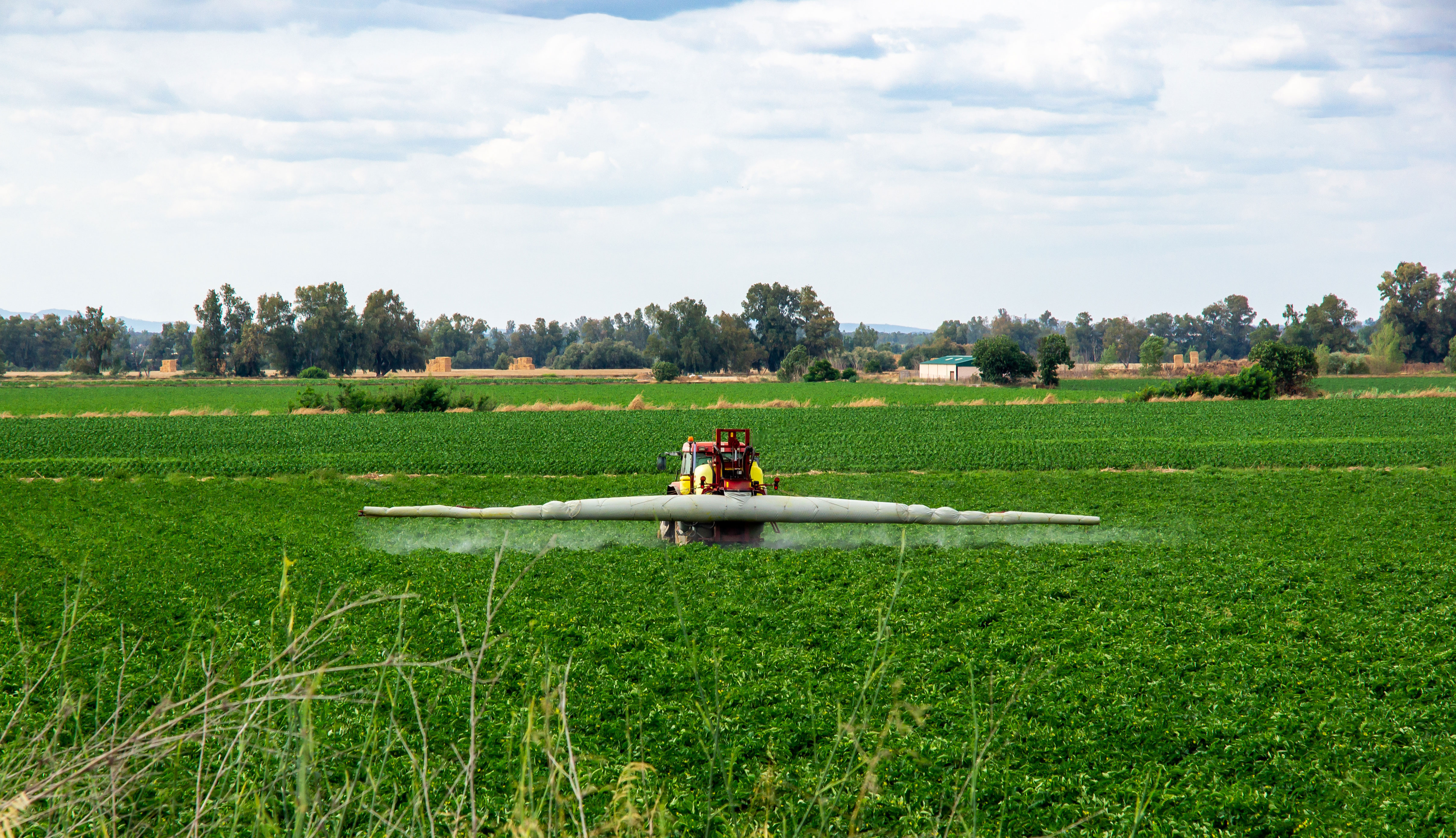On July 14, when the U.S. Department of Commerce terminated the 2019 Agreement Suspending the Antidumping Duty Investigation on Fresh Tomatoes from Mexico and imposed a 17% tariff on most imports of tomatoes from Mexico, reaction from the fresh produce industry was pronounced and deeply divided.
“Mexico remains one of our greatest allies, but for far too long our farmers have been crushed by unfair trade practices that undercut pricing on produce like tomatoes. That ends today,” says Commerce Secretary Howard Lutnick, in a news release. “This rule change is in line with President Trump's trade policies and approach with Mexico.”
But ag economists and industry researchers say the end of the agreement and tariff hike will put billions in economic activity at risk and threaten tens of thousands of jobs. And they say American consumers are likely to feel the impact in higher tomato prices at retail, with some ag economists anticipating the price of not only Mexican tomatoes to increase by about 8.5%, but also prices on all tomatoes sold in the U.S.
Whether to extend the 90-day review period or terminate the agreement has been fiercely debated in the fresh produce industry, with those calling for its termination saying it failed to prevent Mexican exporters from dumping below-production-cost tomatoes into the U.S. market, and proponents of the agreement's extension saying the past five Tomato Suspension Agreements did not fail, but rather benefited American consumers.

Florida Claims Victory
Both the Florida Fruit & Vegetable Association and the Florida Tomato Exchange call the end of the agreement a victory for U.S. tomato growers.
FFVA says this is a positive movement “toward fairer competition, not only for tomato growers but for all specialty crop producers nationwide,” stating Mexico dumped imports into the market for too long, injuring the U.S. tomato industry.
“This action demonstrates that U.S. trade laws can protect American farmers and ensure that U.S. consumers have access to locally grown fruits and vegetables,” the association says. “We are grateful to Commerce Secretary Lutnick and President Trump for listening to growers and leveling the playing field. And for the relentless advocacy of the Florida Congressional Delegation. The future of the industry is stronger without the undue pressures of unfair foreign trade.”
Robert Guenther, executive vice president of the Florida Tomato Exchange, calls it a bold and crucial action.
“This decision will protect hardworking American tomato growers from unfair Mexican trading practices and send a strong signal that the Trump Administration is committed to ensuring fair markets for American agriculture,” Guenther says. “Secretary of Commerce Howard Lutnick recognized that five previous agreements with Mexico had failed, and that strong enforcement of U.S. trade laws is needed to protect the stability of our food supply chain.”
Guenther adds the ending of the agreement will ensure that “American consumers will have more choices and higher-quality products, while strengthening America's food system against future disruptions.”
Bob Spencer, owner of West Coast Tomato in Palmetto, Fla., said in an op-ed sent to The Packer that he's seen a rapid change in the American tomato market, where at one point he says American tomatoes supplied about 80% of the U.S. market but are now down to about 30%.
“When the first agreement went into effect, we saw the impact almost immediately. Prices dropped. U.S. growers started losing contracts. Family farms began shutting down,” he says. “Many hardworking growers have thrown in the towel because they couldn't compete due to these trade practices. Just this season, we have seen one Florida tomato farm sell off prime tomato acreage for development while another just announced they are going out of business and are in the process of selling off their equipment. That's the human cost of failed trade policy.”
Spencer says U.S. growers can't survive in a system that “rewards dumping and turns a blind eye to enforcement,” noting that ending the Tomato Suspension Agreement helps protect American growers and U.S. food production.
Greenhouse Tomato Growers ‘Deeply Disappointed'
The CEA Alliance is deeply disappointed that the Commerce Department chose to proceed with termination of the Tomato Suspension Agreement with Mexico, despite multiple U.S. agriculture and business stakeholders urging renegotiation of the agreement, Stenzel says.
“Unfortunately, the Department [of Commerce] failed to take into account the voice of our members in the U.S. greenhouse tomato industry, which now grows more than one-third of all U.S. fresh tomatoes,” he says. “When the original dumping order was issued in 1996, the greenhouse sector was just beginning to grow, offering consumers better-tasting, vine-ripe tomatoes compared with field tomatoes that are picked green.”
Today, greenhouse tomatoes represent the growth in the category, says Stenzel, pointing to the USDA, which reports production of U.S.-grown greenhouse tomatoes increased 69% from 2010 to 2023, compared to a 49% decline in field-grown tomatoes.
“Because most high-value greenhouse growers farm in Canada, the U.S. and Mexico, the termination of this agreement will cause significant damage to these growers, serving as a financial barrier to new investment in U.S. greenhouses,” he says. “Unfortunately, this became a political issue that was not resolved on the facts of what would be best for American businesses and consumers.”
Stenzel says the CEA Alliance will continue to stress the “critical importance” of the U.S. greenhouse tomato industry moving forward.
“We remain hopeful that open-field growers will reengage in discussions that could serve all parties much more effectively than this order,” he says.
The Economics of Ending Agreement
Luis Ribera, director of the Center for North American Studies at Texas A&M University, rebuts the claim that Mexican imports cause lower tomato prices. He co-authored a study with Andrew Muhammad, professor of agriculture and resource economics at the University of Tennessee, which examined the economic impact of fresh tomato imports on fresh tomato prices.
Ribera says U.S. importers of Mexican tomatoes paid 31 cents per pound in 1995, and they paid around 74 cents per pound in 2024.
“The claim that tomato prices are low because of Mexican imports — the data doesn't show that,” he says.
In fact, Ribera says price increases align with general food inflation.
“They have often exceeded prices paid to American farmers and kept pace with the overall rise in food prices the past three decades,” Ribera and Muhammad wrote in the study.
Ribera says retailers and consumers should expect more volatility in the market, as the Tomato Suspension Agreement took some of the risk in the market.
“There is a lot of uncertainty,” he says. “When you have uncertainty, you're going to have volatility. It's going to hurt the U.S. economy, even though it's imported products.”
Arizona Gov. Katie Hobbs cited the Texas A&M study in a press release on her website that said the decision to terminate the Tomato Suspension Agreement will put $8.33 billion in economic activity at risk and threaten over 50,000 agribusiness jobs in Arizona and Texas. She was joined by affected business leaders and elected officials in denouncing the decision to terminate the agreement.
Lance Jungmeyer, president of the Fresh Produce Association of the Americas, also sees the end of the Tomato Suspension Agreement as detrimental to the U.S. economy and consumer.
“Food inflation is real,” he says. “When prices go up for one item, especially an essential like tomatoes, consumers will spend less on other items. As shoppers spend less on other items, other industry sectors will see reduced volumes, which will contribute to a cycle of layoffs and failures in the food business.
“Also, the cash flow crunch, and the long-term uncertainty existing under antidumping duties means in two years, commerce could retroactively increase the margin, and companies would have to find a way to retroactively pay the difference on all the tomatoes that they shipped during that prior time frame,” he continues. “It is an expense that is impossible to predict or even to plan for. We could see a huge negative impact in two years that causes many companies to go out of business or face significant financial impacts.”

Are Tomatoes Poised for an ‘Eggs Moment'?
David Magaña, senior analyst with RaboResearch Food and Agribusiness, says the termination of the Tomato Suspension Agreement will cause prices in the U.S. to rise. This is due to a number of factors, he says, including that about 70% of the fresh tomatoes consumed in the U.S. are imported and about 90% of U.S. fresh tomato imports are from Mexico.
“The U.S. heavily relies on Mexican tomatoes, especially for specialty varieties like vine-ripened, roma, grape and cocktail tomatoes,” Magaña says. “With the tariff in place, importers must either absorb the cost (unlikely for most), or pass it on to retailers, who then pass it on to consumers.”
What's more, U.S. growers, including those in Florida and California, can't immediately scale up production to replace Mexican supply, creating a supply gap that will also drive prices higher, Magaña says.
American consumers also now expect year-round and robust tomato supplies, helping to make U.S. fresh tomato demand more inelastic in recent decades.
“Per basic economic theory, the more inelastic the demand is, the higher proportion of the duty will be absorbed by consumers versus exporters,” he says.
In 2023, Timothy Richards, professor and chair of the Morrison School of Agribusiness at Arizona State University, and a team of researchers released a study on the direct impact of the end of the Tomato Suspension Agreement. He says a crucial finding in that study is what he calls the “pass-through rate,” or the percentage of the duty that the American consumer will absorb.
“We found that the pass-through rate is going to be about 50%, so my fearless forecast, as all economists like to make, is roughly half of that tariff will be reflected in consumer prices,” he says. “Given that we found out that it's going to be 17%, my prediction is that on average, we expect tomatoes to go up by 8.5%.”
Richards cautions that this 8.5% increase in tomato prices will likely not only affect imports but will also impact every tomato sold in the U.S.
“Because if Mexican tomatoes go up in price, then obviously American prices are going to go up to match that,” he says. “All tomatoes are going to be that much more expensive in the store.”
Ribera says he doesn't think this price increase will stop Americans from buying tomatoes, but it will likely impact shopping habits.
“They might change the kind of tomatoes that they buy,” he says. “Instead of the heirlooms that are a little more expensive, they might go to roma tomatoes. Consumers who like to consume organic tomatoes from Mexico, for example, might switch to conventional because of the price hike.”
While Jungmeyer says consumers might not see an immediate price hike at the supermarket, as it's summer when production from Mexico is not as high as U.S. production, spikes are on the horizon.
“Later in the fall and winter is when we would see the impacts begin on pricing,” he says. “Importers will need to pass along the increased duty amounts to buyers and ultimately consumers. Also, because of the intensive cash flow of duties, the required customs bonding and other expenses associated, it is going to drive a lot of companies to either greatly reduce their plantings or even get out of the tomato business. This supply shortage will lead to an ‘eggs moment,' where fob prices could rise uncontrollably, with supermarket prices to follow. Higher fobs, combined with the duty, will make next year's tomatoes even more expensive.”
“Seventy percent of the fresh tomatoes Americans eat are from Mexico, which means this withdrawal will result in higher prices for American families,” agrees Dante Galeazzi, president and CEO of the Texas International Produce Association. He adds that termination of the agreement “introduces uncertainty and disruption into a binational supply chain that supports tens of thousands of jobs, especially in the Texas border region where we cross 2 billion pounds of tomatoes.”
Rather than scrap the agreement, Galeazzi says all parties would have been better served by modernizing and improving the agreement.
“We urge the administration to reengage in negotiations and prioritize a solution that supports fair trade, economic stability and a healthy supply chain for one of the most widely consumed fresh produce items in the country,” he adds.
Richards says, unfortunately, the big loser in the end of this Tomato Suspension Agreement is the American consumer as tomato prices increase. And he says reducing consumption or access to fresh fruits and vegetables does not square well with healthy eating and nutritional goals.
“There's an adage in economics that you either import the people or you import the products when there's labor cost differences
between two countries,” he says. “The decision was that we don't want to import the products. And all the news from the weekend is that we don't want to import the people either. So, there's a train wreck happening here that you can see coming down the road. There will be labor cost differences between Mexico and the U.S. We either need the people or we need the product. We need to decide, as a society, which one we're going to do.”















